Pregnancy brings a whirlwind of advice, and one common topic is the risk of toxoplasmosis from cats.
Some medical professionals might even suggest finding a new home for your feline friends during this period. But is this fear justified?
This article presents a collection of well-researched facts that question the perceived risk of keeping cats during pregnancy.
It's not a source of medical advice, but a tool to help you have informed discussions with your healthcare provider.
Think about it: would you consider becoming a vegetarian or avoiding gardening during pregnancy? If not, then why consider re-homing your cat?
Please note: This article is not a substitute for professional medical advice. Always consult with a healthcare provider for personal health matters.

Understanding Toxoplasmosis: What's The Big Deal?
Toxoplasmosis, caused by the toxoplasma gondii parasite, can indeed pose a significant risk to an unborn child if a pregnant woman gets infected for the first time.
The consequences can range from miscarriage to severe birth defects. But does this mean panic is warranted? Not necessarily. Instead, it's crucial to be well-informed.
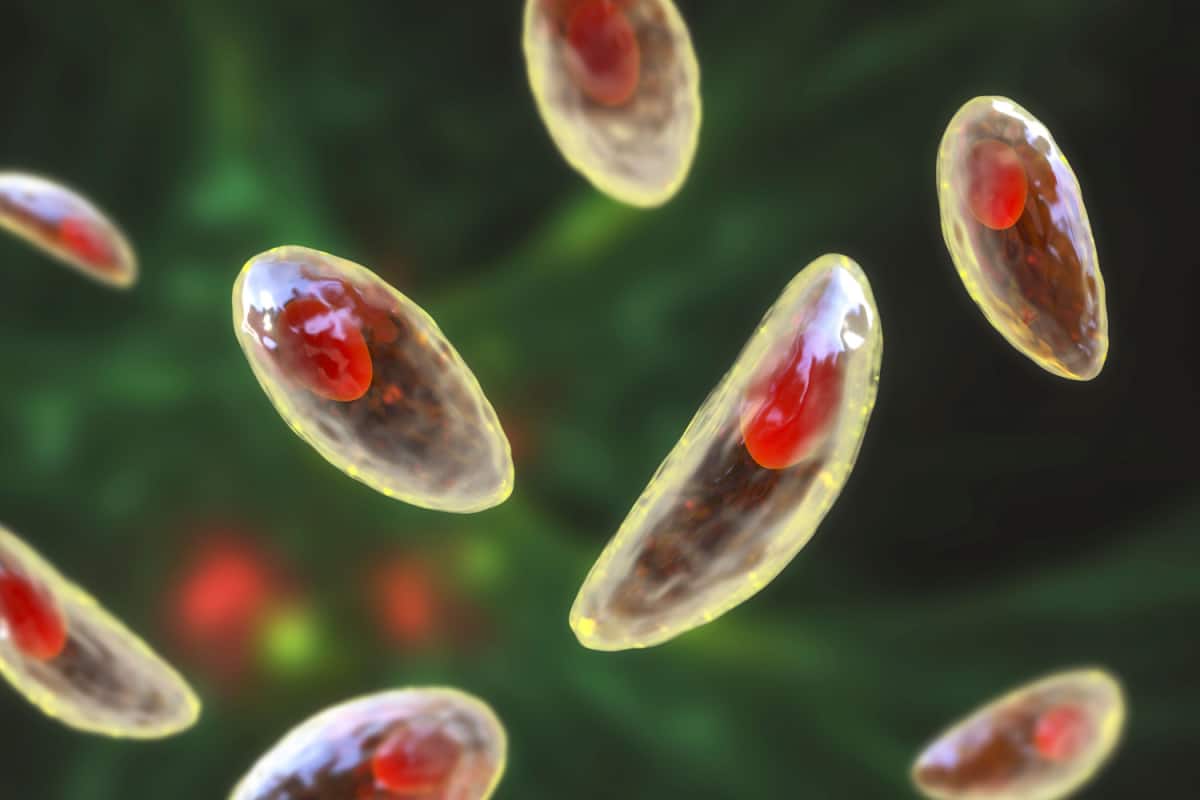
Immunity To Toxoplasmosis
If a woman has previously been exposed to toxoplasmosis, her immunity is passed on to the fetus, providing protection.
The Centers for Disease Control and Prevention (CDC) estimates that 22.5% of the U.S. population aged 12 years and older have been infected with toxoplasma.
In some parts of the world, this figure can be as high as 95 percent. This suggests that toxoplasmosis is a fairly common infection.
Pre-Pregnancy Screening
A simple blood test can be conducted before pregnancy to determine whether an individual is immune to toxoplasmosis.
This test can reveal both a current infection and the presence of antibodies, indicating immunity.
Understanding one's immunity status can provide peace of mind and help in planning for a healthy pregnancy.
It's a proactive step that can potentially mitigate risks associated with toxoplasmosis during pregnancy.
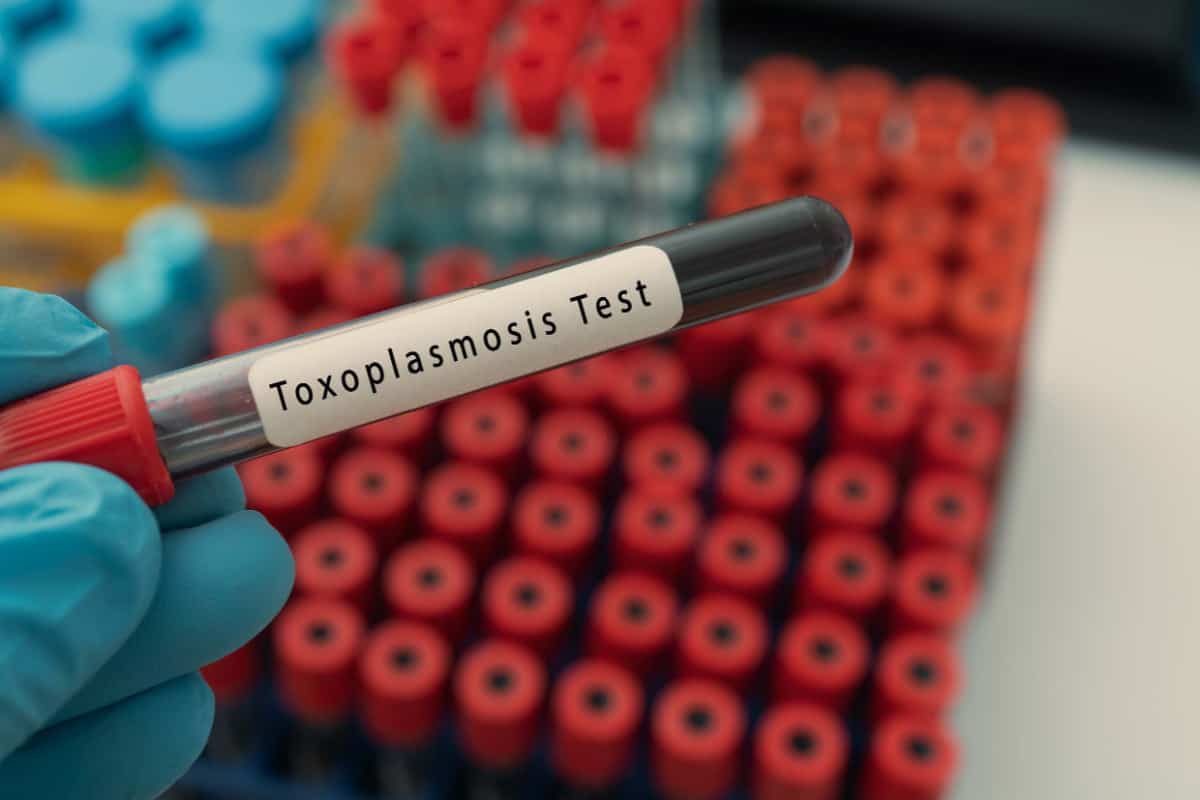
Negative Test Results
Pregnant women who test negative for toxoplasmosis should indeed be cautious and avoid anything that could lead to a first-time infection.
Being informed and taking the necessary precautions can help ensure a safe and healthy pregnancy.
Culprits Of Contracting Toxoplasma
The CDC identifies seven primary ways to contract toxoplasmosis.
Interestingly, cats are only the fifth on the list, followed by congenital infection and the relatively rare occurrence of organ transplants.
The first four methods of contracting toxoplasmosis all relate to food and water contamination, with raw meat being the primary source of toxoplasma contamination.
Here's how you can get toxoplasmosis:
Raw Or Undercooked Meat
Consuming raw or undercooked meat is a common way to contract toxoplasmosis. It's crucial to ensure that meat is cooked thoroughly to kill any potential parasites.
Unwashed Hands Post-Meat Handling
Handling raw meat and not washing hands afterward can also lead to toxoplasmosis. It's a simple step that can make a big difference in preventing infection.

Contaminated Utensils
Using utensils that have come into contact with raw meat can also lead to toxoplasmosis. Always ensure to clean utensils thoroughly after they've been used to handle raw meat.
SIGN UP FOR THECATSITE'S EMAIL UPDATES >
Contaminated Water
Drinking contaminated water is another potential source of toxoplasmosis. Always ensure the water you're consuming is clean and safe.
Cats And Toxoplasmosis: The Feline Connection
How did cats become a part of the toxoplasmosis narrative?
If a cat consumes raw meat infected with toxoplasmosis, it contracts the infection in a similar way to humans.
While the cat may not show any symptoms, it will shed toxoplasma parasites in its feces for about three weeks following the initial infection.
During this period, if a human ingests these cat feces or anything they've come into contact with, it could result in an infection.
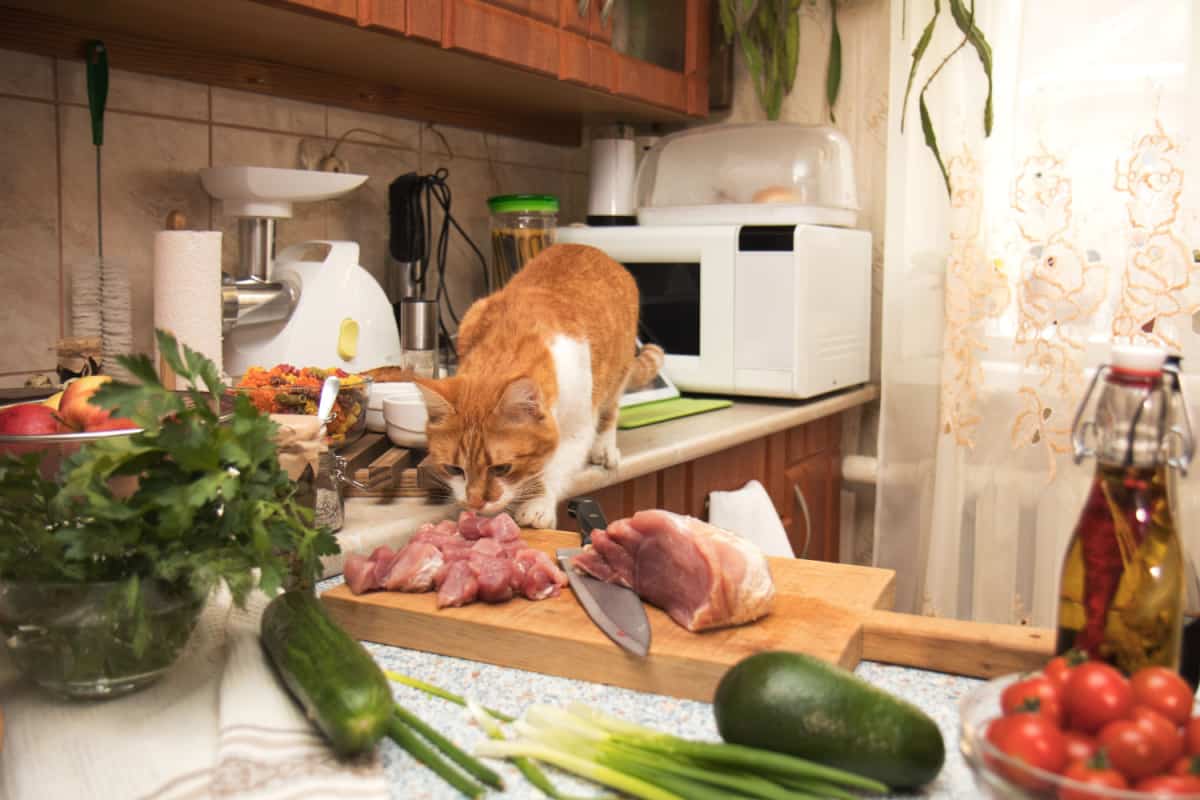
Catching Toxoplasmosis From Cats
To summarize, for a human to contract toxoplasmosis from a cat, several conditions must be met:
1. The individual has no prior exposure to toxoplasmosis, meaning no immunity.
2. The cat must consume infected raw meat, such as wild prey or uncooked meat (not all raw meat or prey is infected).
3. The individual must directly ingest the cat's feces or something that has come into contact with them within three weeks of the cat's infection.
Given these conditions, the risk of direct infection from a cat is quite low. However, due to the potential severity of toxoplasmosis during pregnancy, it's still important to take safety measures.
Navigating Toxoplasmosis: Adopting Safety Measures
The CDC provides a comprehensive fact sheet with a list of safety measures to avoid toxoplasmosis. Interestingly, these precautions primarily focus on food preparation and gardening.
When it comes to managing cats during pregnancy, here are some additional tips to consider:
Delegating Litter Box Duties
If possible, delegate the task of handling the litter box to someone else during pregnancy. It's a perfect excuse for a nine-month break from this particular chore!
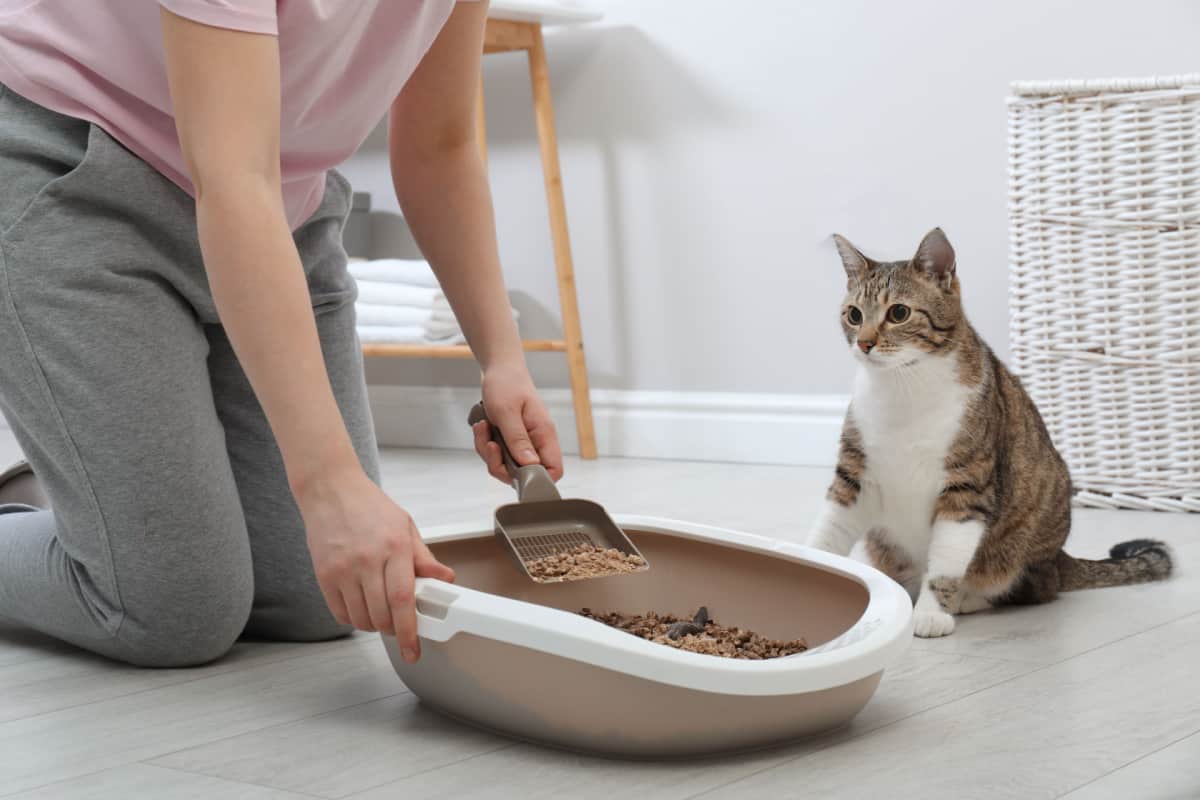
Using Protective Gear
If handling the litter box is unavoidable, wearing disposable gloves is recommended. Dispose of them properly after use.
Emphasizing Hygiene Practices
Maintaining good hygiene is crucial. Always wash your hands after dealing with cat litter, even when gloves are used, and especially before handling food.
Keeping Cats Indoors
If possible, keep cats indoors to limit their access to potential sources of infection, such as prey or uncooked meat.
Preparing Cat Food Safely
For those who feed their cats raw meat, consider freezing the meat for a few days before using it to prepare the cat's meal. This can help kill any potential parasites.
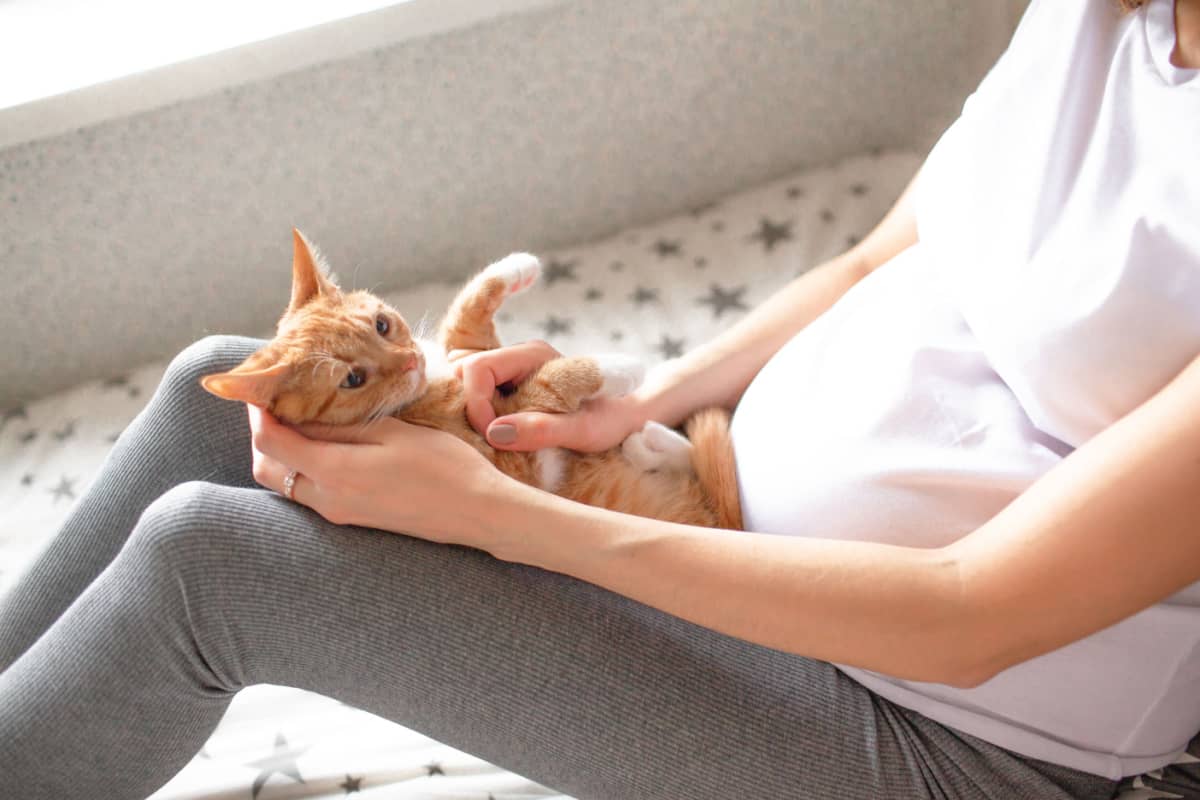
Balancing Toxoplasmosis And Pregnancy: Final Thoughts
Toxoplasmosis warrants attention, especially for pregnant women who haven't been previously exposed to the parasite.
Fortunately, a simple blood test can reveal whether you fall into this category.
By practicing good hygiene, steering clear of raw meats (both for yourself and your cat), and taking extra precautions around the litter box, you can build a solid defense against infection.
So, there's no need to miss out on the joy and comfort of your cat's company during pregnancy!
A Real-Life Example to Inspire Confidence
To put things into perspective, let's take a glance at a real-life scenario.
A cat-loving expectant mother, after a chat with her doctor, discovered she had no prior exposure to toxoplasmosis despite years of being around cats.
She took the reins by letting her husband handle the litter box and avoiding raw meats throughout her pregnancy. The happy outcome? A healthy child who is now seven years old.
This example serves as a testament to the fact that with awareness and precaution, one can safely enjoy the companionship of cats during pregnancy without compromising health and well-being.
By the way, the mother in this story was none other than me, Anne Moss.
SIGN UP FOR THECATSITE'S EMAIL UPDATES >
Comments? Leave them using the comment section below. Questions? Please use the cat forums for those!
You might get interested in the following articles we have below.
Feline Herpes And Rhinotracheitis: Expert Advice For Cat Owners
Vaccine-Associated Sarcoma In Cats
Note: We may get commissions for purchases made through links on this page.

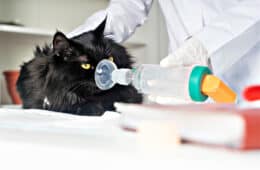

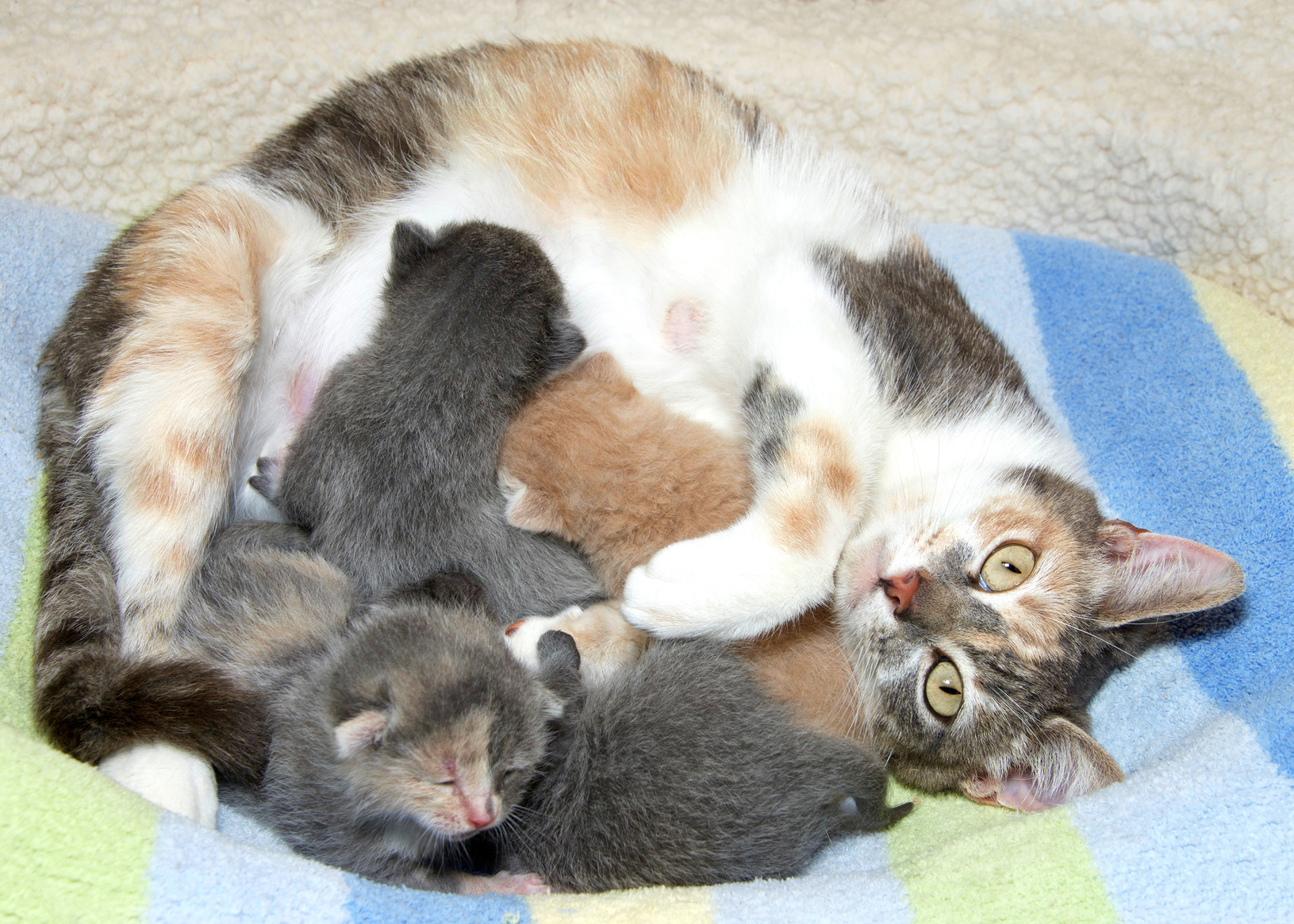
2 comments on “Toxoplasmosis And Cats – Understanding The Real Risks”